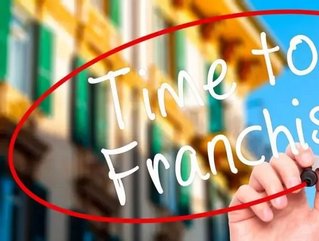Buying a franchise: 3 tips for getting it right the first time

Franchising can be a fantastic way to take advantage of brand names and make lots of money, but it can also be full pitfalls if you aren't prepared.
Franchising without thinking ahead can be very expensive, and it may lead to a number of liability costs that you did not anticipate.
In order to prepare for the possibility of franchising, here are some tips:
Franchise Fees
Many franchises charge fees for using their brand names, likenesses, products, and so on.
In order to not only offset costs with training a franchisee, but also to generate revenue, many franchise owners charge a fee to get involved. The benefit of paying this fee is that you, the franchisee, are able to advertise your establishment using an established brand name.
However, not all franchises charge this fee, and some will be willing to reduce it in some circumstances.
This is why it's a good idea to look at what has worked in your region or local market and then find franchises that are willing
Be Fair About Your Contract
Many franchisees are so excited to get involved that they agree to almost anything the franchise offers.
In the article, "Avoid These Pitfalls When Buying a Franchise," the author mentions that what's important to remember is that franchises are able to offer their franchising services for a number of reasons: money, experience, and brand recognition.
This means that most contracts will be initially written in the franchise's favor, and very rarely will potential franchisees speak up to voice concern.
As a result, you need to bring to light questions or concerns that you have regarding terms and conditions. Failing to do so may mean you will fail as a franchisee.
Get a Lawyer
In addition to the above, it would be a very good idea to retain the services of a lawyer who specializes in franchise contracts.
This can go a long way in helping if you find that the signed contract does not provide you with the products or services that you initially expected.
It can also help if you are found to be in a position in which you are personally not able to meet the requirements of the contract for various reasons that may not have been clearly outlined.
A lawyer can also come in handy if the franchisor tries to change the terms and/or conditions after agreeing to a contract, something that, sadly, happens all too often.
About the Author: Andrew Rusnak is an author who writes on topics that include franchise purchases and business development.






